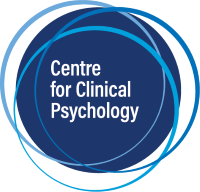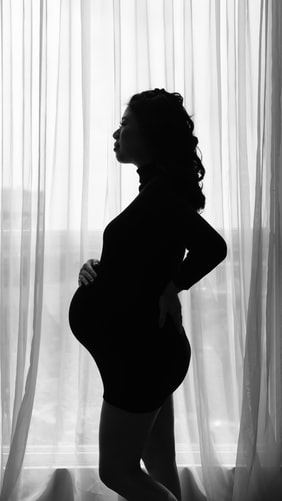In perinatal clinical practice, especially in maternity settings, women are frequently referred during pregnancy for treatment of PTSD. The symptoms of PTSD are often the result of a previous traumatic birth. But this raises questions such as…..
Is it safe to provide PTSD treatment during pregnancy?
What about the possible adverse effects on the baby in utero?
Will this put too much pressure on the woman and cause problems with the pregnancy?
Professionals are sometimes reluctant to offer mental health treatment because of concerns about the effects of the stress response evoked during therapy upon the unborn baby. Certainly, PTSD treatment tends to first intensify the patient’s distress, before leading to a reduction in symptoms. However, untreated PTSD is by virtue of the condition, is associated with elevated stress which also poses a risk to the infant, as well as a potential risk to the mother’s engagement in the pregnancy and the later parent-infant relationship. On the other hand, psychologists know that there are long-term benefits for parent, the parent-infant relationship and the for the infant when PTSD is treated successfully.
Unfortunately, there is very little research data documenting outcomes of treatment for PTSD during pregnancy (eg. Baas, van Pampus, Braam, Stramrood, & de Jongh, 2020). Just as there is only a small number of studies that examined treatment outcomes for PTSD following traumatic birth (for reviews see: Futura, Sandall, Cooper & Bick, 2014; Slade, Molyneux & Watt, 2021).
In my clinical experience pregnant women with PTSD as a result of a previous traumatic birth can present with intense levels of distress. This can interfere with her antenatal attachment to the unborn baby and the transition to motherhood. Women may also be referred because of an activation of a trauma which pre-dated the birth, but which is being activated by the pregnancy.
The question about whether it is feasible to treat PTSD during pregnancy depend upon constraints such as how much time is available to work through a treatment protocol. Cognitive Processing Therapy (CPT) for PTSD for example generally requires 12 sessions. If the woman is too far into her pregnancy, there may not be time to do this work. The woman also needs to be physically well and able to commit herself to the treatment. It is also prudent to discuss what would happen if the therapy was interrupted mid-way because the woman experienced pregnancy complications and was unable to continue.
Perinatal practitioners know however that pregnancy confers a particular advantage for mental health treatment. The time limit it imposes can be especially helpful. A woman can be highly motivated to ‘set things right’ before the baby arrives, thus creating a unique window of opportunity. Mothers are usually acutely aware that the successful treatment of PTSD will support their relationship with their baby to get off on the right foot. It can also be tremendously healing when a subsequent birth is experienced as having gone well.
Women should be encouraged to work with their midwife or obstetrician to understand what went wrong last time. To familiarise themselves with the birth suites before being in labour and to take an active role in advocating for themselves.
In short, it is a matter of clinical judgement whether the clinician feels it is appropriate to commence treatment for PTSD during pregnancy. It is important to consider the risks and benefits of this work, the physical health of the mother, her motivation, and the chronicity of the trauma/s. This can be deeply rewarding work and lead to dramatically better for parents and their babies.
At the Centre for Clinical Psychology, we provide training in Cognitive Processing Therapy. See here for training dates in 2022. You can also watch videos of our clients speaking about their experience of participating in CPT.
Access my presentation on Birth trauma from 15th February, or sign up to our newsletter for event launch information here.
References:
Baas, A.M, van Pampus, M.G., Braam, L, Claire, Stramrood, A.I, & de Jongh, A. (2020) The effects of PTSD treatment during pregnancy: systematic review and case study, European Journal of Psychotraumatology, 11:1, 1762310, DOI: 10.1080/20008198.2020.1762310 To link to this article: https://doi.org/10.1080/20008198.2020.1762310
Furuta, M., Sandall, J., Cooper, D., & Bick, D. (2014). The relationship between severe maternal morbidity and psychological health symptoms at 6-8 weeks postpartum: A prospective cohort study in one english maternity unit. BMC Pregnancy and Childbirth, 14, 133. doi:http://dx.doi.org/10.1186/1471-2393-14-133
Slade, P., Molyneux, R & Watt, A. (2021). A systematic review of clinical effectiveness of psychological interventions to reduce post traumatic stress symptoms following childbirth and a meta-synthesis of facilitators and barriers to uptake of psychological care. Journal of Affective Disorders, Volume 281, 678-694. ISSN 0165-0327. https://doi.org/10.1016/j.jad.2020.11.092.



